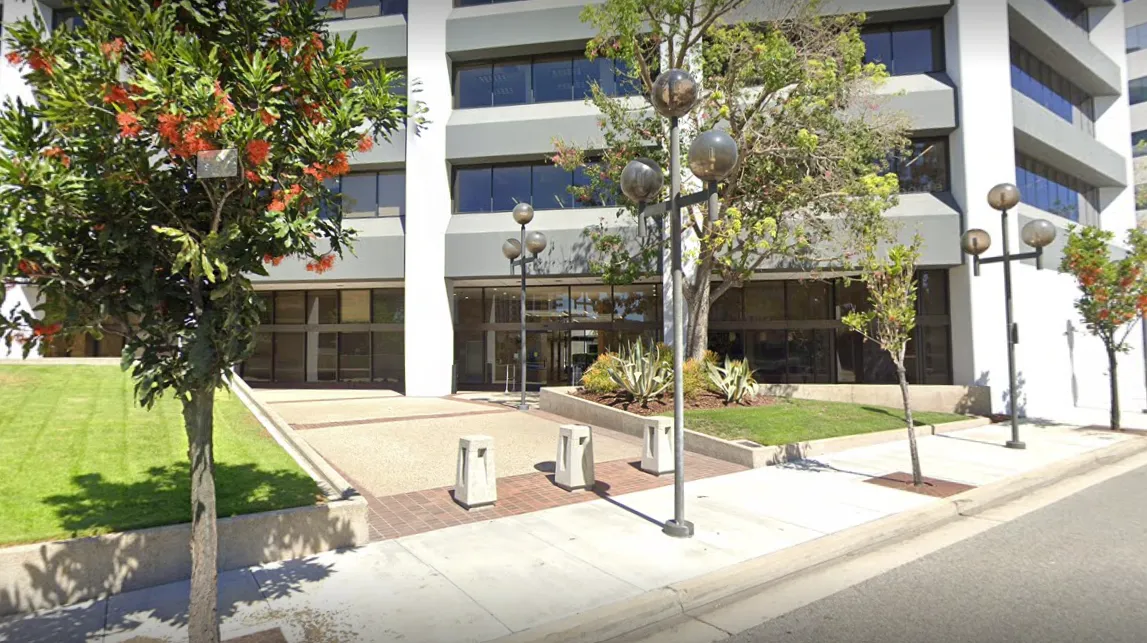Bulimia recovery combines medical care, therapy, and holistic support to address the physical and emotional impacts of disordered eating. Programs help individuals manage triggers, develop self-compassion, and build sustainable eating habits. Group support and individualized care foster confidence and stability, promoting a healthier, more balanced life.
Ads
More Info
Advertisement Disclosure
Our website is funded by advertisers who pay for prominently labeled placements.
Read More33 Rehab Centers were found
Filters
Locations
- Los Angeles(+98)
- Culver City(+14)
- Westlake Village(+13)
- Woodland Hills(+11)
- Beverly Hills(+10)
- Santa Monica(+9)
- Sherman Oaks(+7)
- West Hollywood(+6)
- Malibu(+5)
- Chatsworth(+5)
- Pasadena(+5)
- Encino(+5)
- Redondo Beach(+4)
- Lancaster(+4)
- Reseda(+4)
- Studio City(+4)
- Northridge(+3)
- San Mateo(+3)
- Lynwood(+3)
- Vernon(+3)
- Van Nuys(+3)
- Tarzana(+3)
- North Hollywood(+3)
- Glendale(+3)
- Gardena(+3)
- Riverside(+3)
- Granada Hills(+2)
- Shadow Hills(+2)
- Venice(+2)
- Orange County(+2)
- Pomona(+2)
- West Hills(+2)
- Valley Village(+2)
- Burbank(+2)
- Brentwood(+2)
- Long Beach(+2)
- Sun Valley(+1)
- Torrance(+1)
- San Jacinto(+1)
- San Pedro(+1)
- Upland(+1)
- Whittier(+1)
- Toluca Lake(+1)
- Thousand Oaks(+1)
- Simi Valley(+1)
- Mission Viejo(+1)
- Acton(+1)
- Beaumont(+1)
- Wilmington(+1)
- Panorama City(+1)
- Anaheim(+1)
- Laguna Hills(+1)
- Inglewood(+1)
- Alhambra(+1)
- Rosemead(+1)
- Maywood(+1)
- Manhattan Beach(+1)
- Monterey Park(+1)
- Claremont(+1)
- Covina(+1)
- La Puente(+1)
- Pico Rivera(+1)
- San Fernando(+1)
- Azusa(+1)
- Santa Fe Springs(+1)
- Glendora(+1)
- Agoura Hills(+1)
- El Segundo(+1)
- Duarte(+0)
- Sunland(+0)
- Downey(+0)
- Cudahy(+0)
- El Monte(+0)
- Compton(+0)
- Hermosa Beach(+0)
- Cerritos(+0)
- Calabasas(+0)
- Bellflower(+0)
- Bell Gardens(+0)
- Avalon(+0)
- Arcadia(+0)
- Altadena(+0)
- Paramount(+0)
- South El Monte(+0)
- Walnut(+0)
- West Covina(+0)
- Santa Clarita(+0)
- San Gabriel(+0)
- San Dimas(+0)
- Rolling Hills(+0)
- Orange(+0)
- Hawaiian Gardens(+0)
- Palmdale(+0)
- Norwalk(+0)
- Montebello(+0)
- Lakewood(+0)
- South Pasadena(+0)
- Carson(+0)
- Hawthorne(+0)
Conditions
- Drug(+278)
- Alcohol(+219)
- Mental Health(+195)
- Opioid(+193)
- Cocaine(+184)
- Trauma(+180)
- Methamphetamine(+177)
- Benzodiazepines(+174)
- Heroin(+173)
- Prescription Drugs(+159)
- Depression(+152)
- Anxiety(+149)
- Xanax(+145)
- Synthetic Drugs(+138)
- PTSD(+133)
- Adderall(+131)
- Marijuana(+112)
- Bipolar(+109)
- Ecstasy(+104)
- MDMA(+99)
- Behavioral Health(+93)
- LSD(+93)
- Psychedelics(+91)
- Fentanyl(+71)
- Stress(+71)
- OCD(+69)
- Personality Disorders(+63)
- ADHD(+61)
- Gambling(+38)
- Eating Disorders(+35)
- Anorexia(+34)
- Binge Eating Disorder(+34)
- Bulimia(+33)
- Schizophrenia(+32)
- Gaming(+28)
- Internet Addiction(+27)
- Sex Addiction(+25)
- Burnout(+23)
- Pornography(+22)
- Shopping(+10)
- Narcissism(+8)
Insurances
- BlueCross BlueShield(+129)
- Aetna(+126)
- Anthem(+105)
- Cigna(+105)
- United Healthcare(+66)
- Humana(+63)
- Optum(+53)
- Medicaid(+53)
- MHN(+51)
- Magellan Health(+47)
- Kaiser Permanente(+39)
- Medicare(+31)
- GEHA(+31)
- ComPsych(+29)
- Highmark(+25)
- AmeriHealth(+13)
- Tufts Health(+11)
- Oscar(+9)
- CareFirst(+9)
- Molina Healthcare(+8)
- Intermountain Healthcare(+6)
- Beacon Health Options(+2)
- UMR(+2)
- NYSHIP(+2)
- ILWU(+2)
- Geisinger(+2)
- Empire Life(+2)
- Empire BCBS(+2)
- Bright Health(+2)
- GuideWell(+1)
Therapies

$1,50

N/A

$3,200 - 30 days

Call for Rates - 30 days

$35,000 - 30 days

$10,000+ - 30 days
Bulimia Treatment in Los Angeles
Bulimia nervosa is a serious eating disorder characterized by cycles of binge eating followed by compensatory behaviors such as vomiting, excessive exercise, fasting, or laxative use. Unlike anorexia, individuals with bulimia often maintain a normal weight or even fluctuate between weight ranges, making the disorder harder to detect.
Bulimia is not just about food—it is deeply connected to emotional regulation, body image struggles, and self-worth. Many individuals use bingeing and purging as a way to cope with stress, trauma, or feelings of inadequacy. Without proper treatment, bulimia can lead to serious physical health complications, including heart issues, digestive damage, and electrolyte imbalances.
Los Angeles offers a variety of bulimia treatment options, from outpatient therapy to intensive residential programs, helping individuals regain control over their eating habits and emotional well-being.
Understanding the Cycle of Bulimia
Bulimia typically follows a pattern of:
- Binge eating: Consuming an excessive amount of food in a short period, often feeling out of control.
- Guilt and shame: Intense regret or self-judgment following a binge episode.
- Compensatory behaviors: Purging, fasting, excessive exercise, or other attempts to “undo” the binge.
- Temporary relief: A brief feeling of control before the cycle repeats.
This cycle becomes addictive, as bingeing provides temporary emotional comfort, while purging offers a false sense of control. However, over time, the behaviors become compulsive and harder to stop without intervention.
Signs That Bulimia Treatment is Needed
Because many individuals with bulimia maintain a normal weight, the disorder can be difficult to recognize. However, certain behaviors indicate a growing problem:
- Frequent binge eating, often in secret
- Fear of losing control over food intake
- Purging behaviors such as vomiting or excessive exercise
- Extreme preoccupation with weight, calories, and body shape
- Using food as a coping mechanism for stress or emotions
- Swelling in the face or jaw due to purging
- Frequent sore throats, acid reflux, or dental issues from stomach acid exposure
- Feeling guilt or shame after eating, leading to restrictive dieting
If left untreated, bulimia can lead to long-term health consequences such as dehydration, heart arrhythmias, digestive problems, and severe nutrient deficiencies.
Effective Bulimia Treatment Approaches
Successful bulimia treatment addresses both physical health and psychological factors. Many individuals require a combination of therapy, medical monitoring, and nutritional rehabilitation to recover fully.
Cognitive Behavioral Therapy (CBT) is one of the most effective treatments for bulimia. CBT helps individuals recognize and change negative thought patterns related to food, weight, and self-worth, reducing the urge to binge or purge.
Dialectical Behavior Therapy (DBT) focuses on emotional regulation and impulse control, helping individuals manage distress without turning to disordered eating behaviors.
Nutritional Counseling provides structured meal plans to break the cycle of restriction and bingeing. Many treatment programs work with dietitians to help individuals rebuild a healthy relationship with food.
Medical Monitoring is necessary for those who have experienced frequent purging, as bulimia can cause dangerous electrolyte imbalances that affect heart function. Some individuals may require hospitalization if their physical health is at immediate risk.
Exposure Therapy helps individuals gradually reintroduce foods they fear without triggering binge episodes. This approach teaches balance and reduces anxiety around eating.
Medication Management may be beneficial for those experiencing co-occurring conditions such as anxiety, depression, or obsessive-compulsive disorder (OCD), which often contribute to bulimia. Some antidepressants, such as fluoxetine, have been FDA-approved for bulimia treatment.
For individuals with severe symptoms, residential or inpatient treatment programs provide round-the-clock support in a structured environment, helping to establish healthier eating habits and emotional coping mechanisms.
Breaking Free from the Binge-Purge Cycle
One of the biggest challenges in bulimia recovery is learning to tolerate discomfort without resorting to purging behaviors. Many individuals struggle with intense urges after bingeing, making relapse prevention a key focus in treatment.
Some effective strategies include:
- Mindful eating: Paying attention to hunger cues and eating without distractions.
- Delaying the urge to purge: Engaging in an alternative activity when the impulse arises.
- Challenging perfectionism: Letting go of all-or-nothing thinking about food and body image.
- Journaling emotions: Understanding what triggers binge episodes and finding alternative coping strategies.
Healing Emotional Triggers
Bulimia is rarely just about food—it is often tied to deeper emotional struggles. Many individuals use bingeing and purging as a way to suppress difficult emotions, escape stress, or cope with trauma.
Therapy helps individuals:
- Identify underlying emotional wounds that contribute to disordered eating.
- Develop healthy coping skills for dealing with stress, anxiety, or self-doubt.
- Build self-compassion and a sense of self-worth that is not tied to appearance.
- Establish a new relationship with food and body image that is based on nourishment rather than punishment.
Long-Term Recovery and Relapse Prevention
Because bulimia involves compulsive behaviors, recovery is an ongoing process. Many individuals experience relapses, especially during periods of high stress or emotional turmoil. However, with continued therapy and support, setbacks can be managed without returning to old habits.
Some key relapse prevention strategies include:
- Avoiding extreme dieting or food restrictions that can trigger binge episodes.
- Continuing therapy or support groups to stay accountable.
- Building a supportive environment that encourages healthy eating habits.
- Practicing self-care to reduce the emotional triggers for disordered eating.
Many individuals find that recovery gives them greater emotional resilience and a stronger sense of self beyond their weight or eating habits.
Finding Bulimia Treatment in Los Angeles
Los Angeles has numerous eating disorder treatment programs, ranging from outpatient therapy to intensive residential care. Many clinics specialize in evidence-based treatments tailored to individuals struggling with bulimia, offering a safe and supportive environment for healing.
If you or a loved one is struggling with bulimia, reaching out to a professional is the first step toward recovery. Many treatment centers provide free consultations to discuss options and create a personalized plan.
Frequently Asked Questions
Can bulimia be treated without therapy?
What happens to the body after stopping purging?
Is bulimia as dangerous as anorexia?
Are there specialized bulimia treatment programs for teenagers in Los Angeles?
Ads
More Info
Advertisement Disclosure
Our website is funded by advertisers who pay for prominently labeled placements.
Read More







































